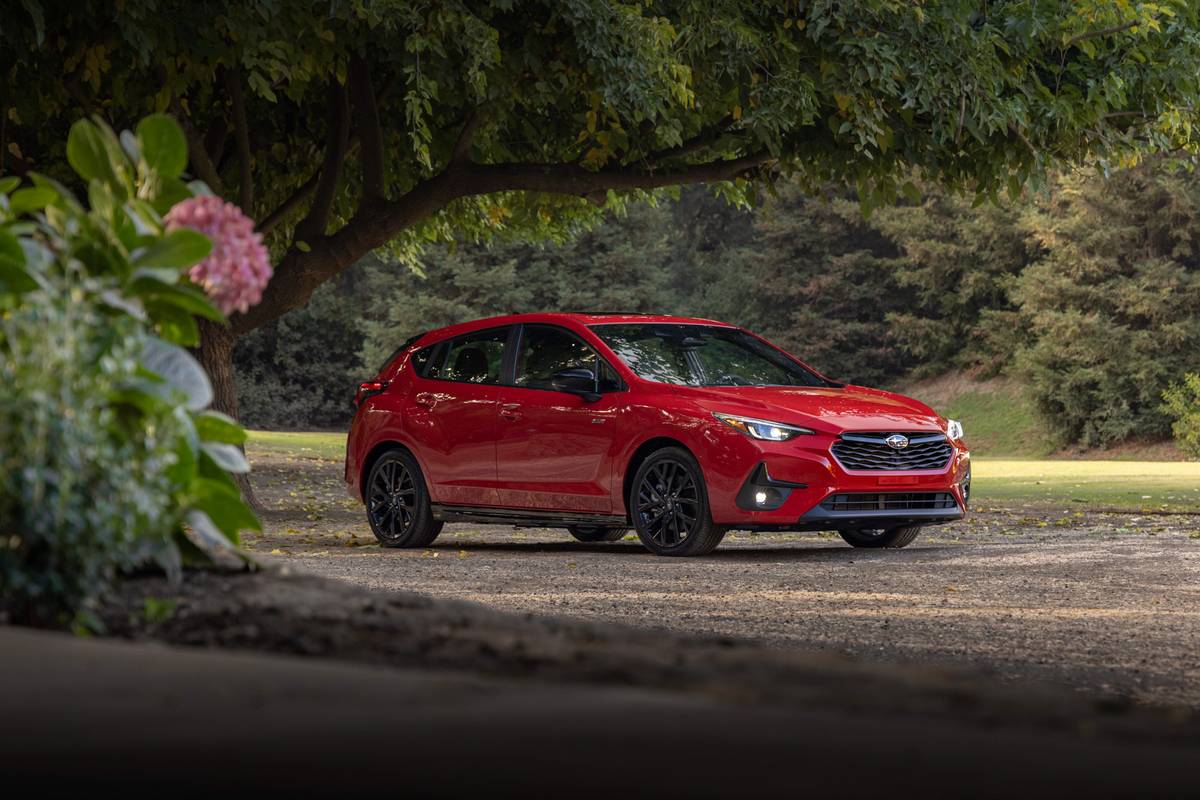Subaru Tops Consumer Reports Annual Auto Reliability Survey

Nonprofit research, testing and advocacy organization Consumer Reports has released the results of its annual Auto Reliability Survey, and for the first time ever, Subaru gets the crown of most dependable brand. The results combine road tests with reliability and owner satisfaction data from surveys of its members to produce the rankings.
Related: What Brand Makes the Most Reliable Used Cars?
CR members responded to the organization’s survey, submitting data on over 300,000 vehicles. Survey questions covered 20 potential trouble areas, ranging from minor things like broken or loose interior trim to failures of major mechanical components such as engines, electric motors and transmissions. Trouble areas are weighted according to severity and used to generate a reliability score of 1 to 100. Survey respondents provided data on vehicles from model years 2000 through 2025, though CR notes that it approximates reliability info on new 2025 models based on several factors.
Most Reliable Car Brands
In claiming the top spot in CR’s reliability rankings, Subaru dethrones Lexus and Toyota, which have been trading the honors since 2021 — and land in second and third place for 2024, respectively. It’s tempting to tie Subaru’s ascent to its association with Toyota, as the two automakers collaborated on the BRZ and GR86 sports cars and the Solterra and bZ4X electric crossovers, but that’s also inaccurate: The Solterra was Subaru’s lowest-ranking model and its sole offering with below-average reliability. Notably, Subaru also tops CR’s overall brand rankings for 2025, with those scores incorporating owner satisfaction, maintenance and repair costs, and Insurance Institute for Highway Safety and National Highway Traffic Safety Administration safety data.
Asian brands continue to dominate CR’s reliability rankings, with Honda, Acura and Mazda in fourth, fifth and sixth place, and Kia and Hyundai in ninth and 10th. Audi and BMW fill out the top 10 in seventh and eighth place, respectively. Not every brand appears in the organization’s rankings, as CR did not have sufficient data to rank Alfa Romeo, Chrysler, Dodge, Fiat, Infiniti, Jaguar, Land Rover, Lincoln, Lucid, Maserati, Mercedes-Benz, Mini, Mitsubishi, Polestar, Porsche or Ram. (The organization requires data on at least two models to rank a brand.)
Consumer Reports’ reliability rankings for the brands that made the cut are as follows:
1. Subaru: 68
2. Lexus: 65
3. Toyota: 62
4. Honda: 59
5. Acura: 55
6. Mazda: 55
7. Audi: 54
8. BMW: 53
9. Kia: 51
10. Hyundai: 50
11. Buick: 48
12. Nissan: 48
13. Ford: 44
14. Genesis: 40
15. Volvo: 38
16. Chevrolet: 37
17. Tesla: 36
18. Volkswagen: 34
19. Jeep: 33
20. GMC: 33
21. Cadillac: 27
22. Rivian: 14
Vehicle and Powertrain Types
CR also breaks down its results by body style and powertrain. Cars — a category which includes sedans, hatchbacks and wagons — had the highest reliability, averaging a score of 60 on the 100-point scale, followed by minivans with 57. SUVs averaged 49, and pickup trucks came in last with an average reliability rating of 36.
CR notes that the powertrain type can have a significant impact on reliability. Of the 20 potential trouble areas the survey addresses, 17 apply to vehicles with internal combustion engines. Electric vehicles’ simpler powertrains mean that only 12 trouble areas are applicable to them, while hybrids have most of the complications from both (save for EVs’ charging systems for non-plug-in hybrids) and are subject to 19 trouble areas. PHEVs are rated in all 20 problem categories.
Despite their greater complexity, internal combustion engines remain the most reliable according to CR’s survey responses. Regular hybrids are about as reliable as ICEs, which CR notes is “remarkable, given their added complexity.” From this group, however, Hyundai, Kia, Lexus and Toyota hybrids ranked highest, while the Ford Escape and F-150 hybrids scored the worst, with the latter being the single least reliable model in the survey.
Newer-technology EVs and PHEVs have lagged well behind ICEs and regular hybrids in past CR reliability surveys. While they continue to do so, they are also rapidly improving, problem rates for both vehicle types dropping dramatically since the 2024 survey. EVs’ problem rates dropped from 79% higher than ICEs to 42% year over year, while plug-ins went from 146% higher than ICEs to 70%.
More From Cars.com:
- Study: These 3-Year-Old Cars Are the Most Dependable
- Report Finds Poor Reliability for Electric Vehicles
- Which Used Cars Have the Best Crash-Test Scores?
- Which Cars Under $40,000 Have Earned IIHS Top Safety Pick and NHTSA 5-Star Awards?
- Study: Partial Driving Automation May Be Teaching Drivers Wrong Behaviors
Related Video:
Cars.com’s Editorial department is your source for automotive news and reviews. In line with Cars.com’s long-standing ethics policy, editors and reviewers don’t accept gifts or free trips from automakers. The Editorial department is independent of Cars.com’s advertising, sales and sponsored content departments.
Featured stories




